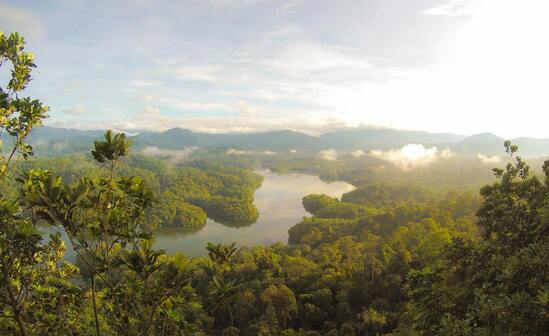Asia Pacific Natural Climate Solutions Technical Assistance Facility
Quantedge Advancement Initiative is supporting Conservation International Asia-Pacific’s Natural Climate Solutions Technical Assistance Facility that provides funding to develop a pipeline of high-quality natural climate solutions (NCS) projects in Asia-Pacific.
The protection, restoration and improved management of natural ecosystems can contribute significantly to climate mitigation efforts. They also provide a range of important co-benefits, such as sustainable livelihoods for local communities and increase in biodiversity. Despite this, NCS projects currently only receive 3% of global climate funding. Coupled with an increase in demand for nature-based carbon credits in recent years, there has been a relative under-supply of high-quality NCS projects in the region.
The Technical Assistance Facility is a grant-based recycling finance facility that provides both technical and financial support to NCS projects in the early stages of development. The Facility supports project design and capacity building in areas such as technical, scientific, policy and communications capabilities, which raises the quality of the NCS projects. It also fills the early-stage financing gap where many NCS projects with potential for impact lack upfront capital needed for pre-feasibility, feasibility, or development activities of the projects.
The protection, restoration and improved management of natural ecosystems can contribute significantly to climate mitigation efforts. They also provide a range of important co-benefits, such as sustainable livelihoods for local communities and increase in biodiversity. Despite this, NCS projects currently only receive 3% of global climate funding. Coupled with an increase in demand for nature-based carbon credits in recent years, there has been a relative under-supply of high-quality NCS projects in the region.
The Technical Assistance Facility is a grant-based recycling finance facility that provides both technical and financial support to NCS projects in the early stages of development. The Facility supports project design and capacity building in areas such as technical, scientific, policy and communications capabilities, which raises the quality of the NCS projects. It also fills the early-stage financing gap where many NCS projects with potential for impact lack upfront capital needed for pre-feasibility, feasibility, or development activities of the projects.
By pooling funds from various funders and allocating them to the highest priority sites or projects, the Facility streamlines the fundraising process for individual NCS projects and concentrates efforts on ensuring the quality and sustainability of the projects. Through this, the Facility aims to reduce bottlenecks in the sourcing and development of NCS project pipelines, thereby accelerating the much-needed support for NCS to protect, restore and sustainably manage ecosystems.
Our support for the Technical Assistance Facility will help unlock the potential of NCS in the Asia-Pacific region, catalyse larger investment into high-quality NCS projects and generate benefits for climate, biodiversity and local communities.
Find out more:
Our support for the Technical Assistance Facility will help unlock the potential of NCS in the Asia-Pacific region, catalyse larger investment into high-quality NCS projects and generate benefits for climate, biodiversity and local communities.
Find out more:


